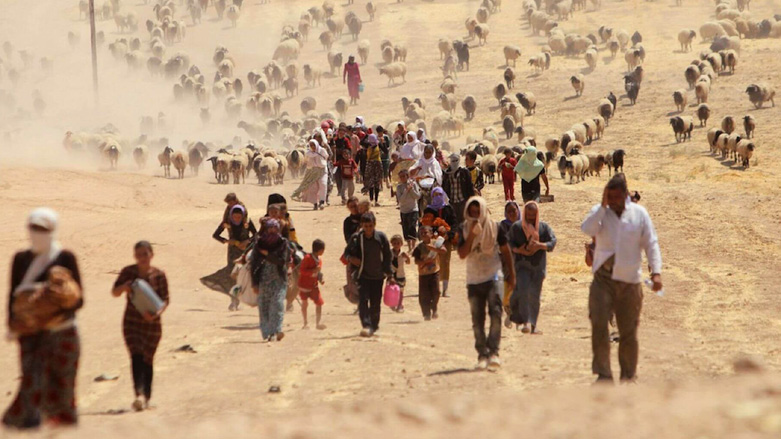Over 90,000 Ezidis left Iraq, Kurdistan since 2014 Islamic State attack

ERBIL (Kurdistan 24) – The Kurdistan Region’s Yezidi (Ezidi) Rescue Office on Sunday released data on the ethno-religious minority, claiming that over 90,000 Ezidis have fled Iraq since the August 2014 Islamic State (IS) attack on their ancestral homeland.
The information released also stated that, in total, 3,084 Ezidis remain in IS captivity or their whereabouts are unknown.
The emergence of IS and its violent assault on the predominantly Ezidi city of Sinjar (Shingal) in 2014 led to the displacement of hundreds of thousands of Ezidis. Most of them fled to the Kurdistan Region, while others moved to neighboring countries in the region or Western states.
Prior to the 2014 attack, there were roughly 550,000 Ezidis in the Kurdistan Region and Iraq. As the jihadist group took over large swaths of territory in Nineveh Province, 360,000 Ezidis escaped violence and found refuge elsewhere, according to the Ezidi Rescue Office.
There are 1,759 Ezidi children who are now without fathers, 407 without their mothers, 359 who were orphaned, and 220 minors who remain in the hands of IS, the office noted in its statement.
It also mentioned that, so far, 69 mass graves have been excavated along with tens of personal graves.
The jihadist group also destroyed 68 Ezidi tombs and shrines as part of its systematic attempts to eradicate the minority group.
Following the occupation of Shingal, 6,417 Ezidis fell to IS, with 3,548 of them being women and the remaining 2,869 being men, they continued.
Over the past few years, the rescue office has reportedly freed 3,334 Ezidis.
The Ezidis experienced atrocities and mass executions at the hands of the extremist group for years after IS overran Shingal, forcing hundreds of thousands of the minority group to flee their homes. Others were not as lucky and remained stranded in the war zone.
IS subjected women to sexual slavery and kidnapped children into forced conversion, executed the men, and abused, sold, and trafficked girls across areas they controlled in Iraq and Syria.
Editing by Nadia Riva
